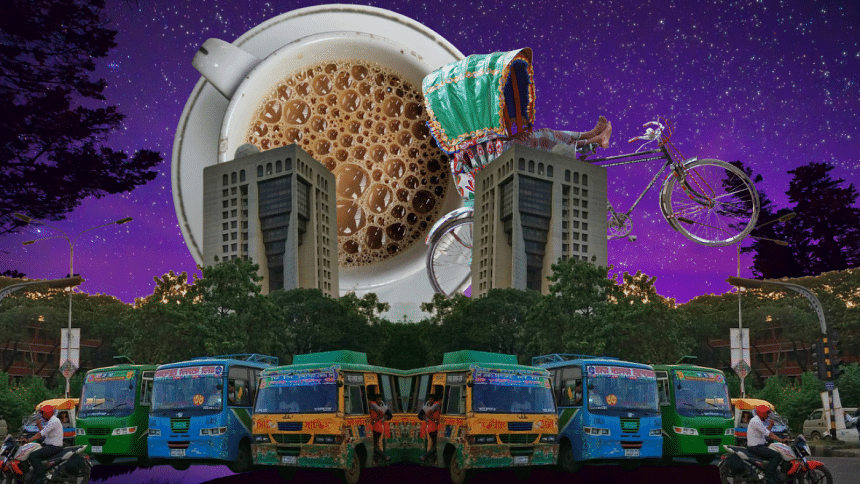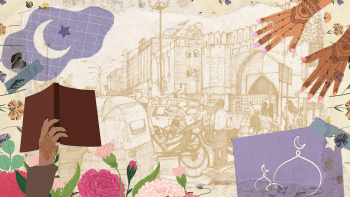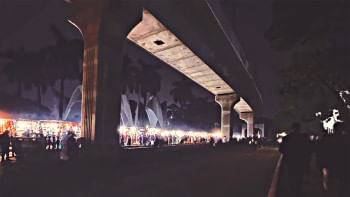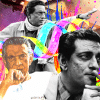An odd memory in Dhaka city

The only thing I like about this city is the thought of leaving it. And I was leaving it finally, after one and a half months, my longest stretch of stay in the last three years. Juggling my luggage with one hand and my phone with the other to get Google Maps directions while I balance myself on the rickshaw racing through bumpy Dhaka roads–it is a metaphor that sums up my life in this city.
It was 11:15 PM at night, and the roads were empty.
I was surprised, pleasantly, to see my favourite tea stall open at this hour. Without stopping the rickshaw, I halted right in front of Shohagh bus counter after a fierce ride through the wrong side of the road. I suppose that's what Dhaka is—a city of rule breakers.
I got a print of my e-ticket and headed into the waiting room only to experience the dearth of decency in this city's men. One of the passengers, oblivious to the possibility that someone might be trying to reach the empty seats to his right, stretched his legs and blocked my way as if the way forward were his kingdom. I heard an "Excuse me" from behind and realised that while recounting the infinitude of Dhaka's inconveniences, I too was adding to it by blocking someone else's way. It was time to retire to one of the seats.
I got up and headed out after a while, and my memory dug out the story of how my dad's bag had gotten stolen in a bus counter once.
It was yet to dawn when my dad, a young doctor at the time, reached Dhaka for a professional exam. He was alone, and the attention-sucking smartphone hadn't yet been invented. When another man, possibly a fellow passenger, struck up a conversation, Baba was happily engaged until the sun rose and it was time for him to leave the counter. Surely, he could ask the amiable stranger to look after his luggage for a few minutes–a bag full of his clothes, books, and important documents like his admit card.
When he returned, the man and the bag both were gone.
I didn't ask anyone to look after my bag when leaving the bus. I didn't want the inconvenience of walking around with luggage either. It was 11:39 PM and my bus was scheduled to leave in six minutes. Factoring in the usual delay, I had around 10 minutes in my mind. Dragging a bag along would have slowed me down. I left it there and hastened my steps.
I crossed the road, walked ahead, then turned left. The yellow lights smiled welcomingly against the night backdrop. A sign became clearer: "Ekhane khati gorur dudher cha pawa jay". Not everything about this city is bad, I thought. And I wanted a sip of goodness before I left.
The first time I stumbled upon this shop, I was in a confused state; left befuddled by Google Maps' directions. It had dragged me into a constricted back alley in Kalabagan and then kept asking me to step into someone's private property, while my intended destination was a commercial building by the main road. I was forced to do away with Maps and reverse my way out of the alley. That's when, to my right, I saw milk being stirred in a half-moon korai. My heart had already started swimming in it. Dhaka street food has taught me better than to go by the look of things. But I ordered a cup nonetheless. It was winter, and the smoke wafting from the clay cups into the post-Maghrib fog wouldn't let me down even if the taste of the tea did.
One sip was enough to wash down all my scepticism. Ever since then, I have been coming here whenever I have the luxury of time on my fortnightly visits back home to Chattogram.
The shopkeeper smiles with recognition and apology when I walk in this time. The thick black iron pot that slowly sediments malai is in its usual place. But the pot is empty and the low flame extinguished. They don't make tea this late at night. I start walking back to the bus.
I keep returning to this city out of obligation. But this tea might make me voluntarily come to Dhaka someday. My thoughts don't keep up with my footsteps.
I'm back at the counter and no one has stolen my bag.
Noushin Nuri is studying business in school and literature at home. Reach her at [email protected].

 For all latest news, follow The Daily Star's Google News channel.
For all latest news, follow The Daily Star's Google News channel. 









Comments